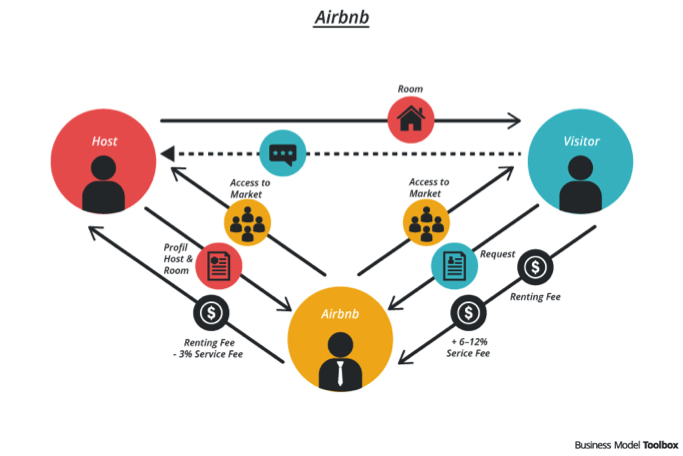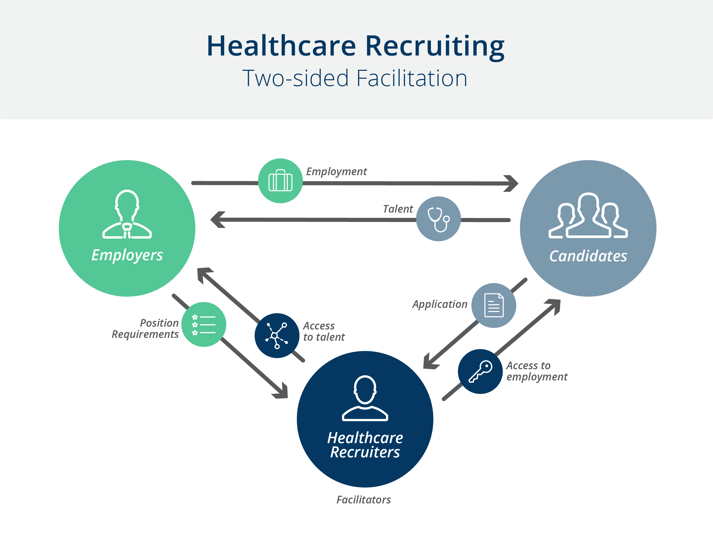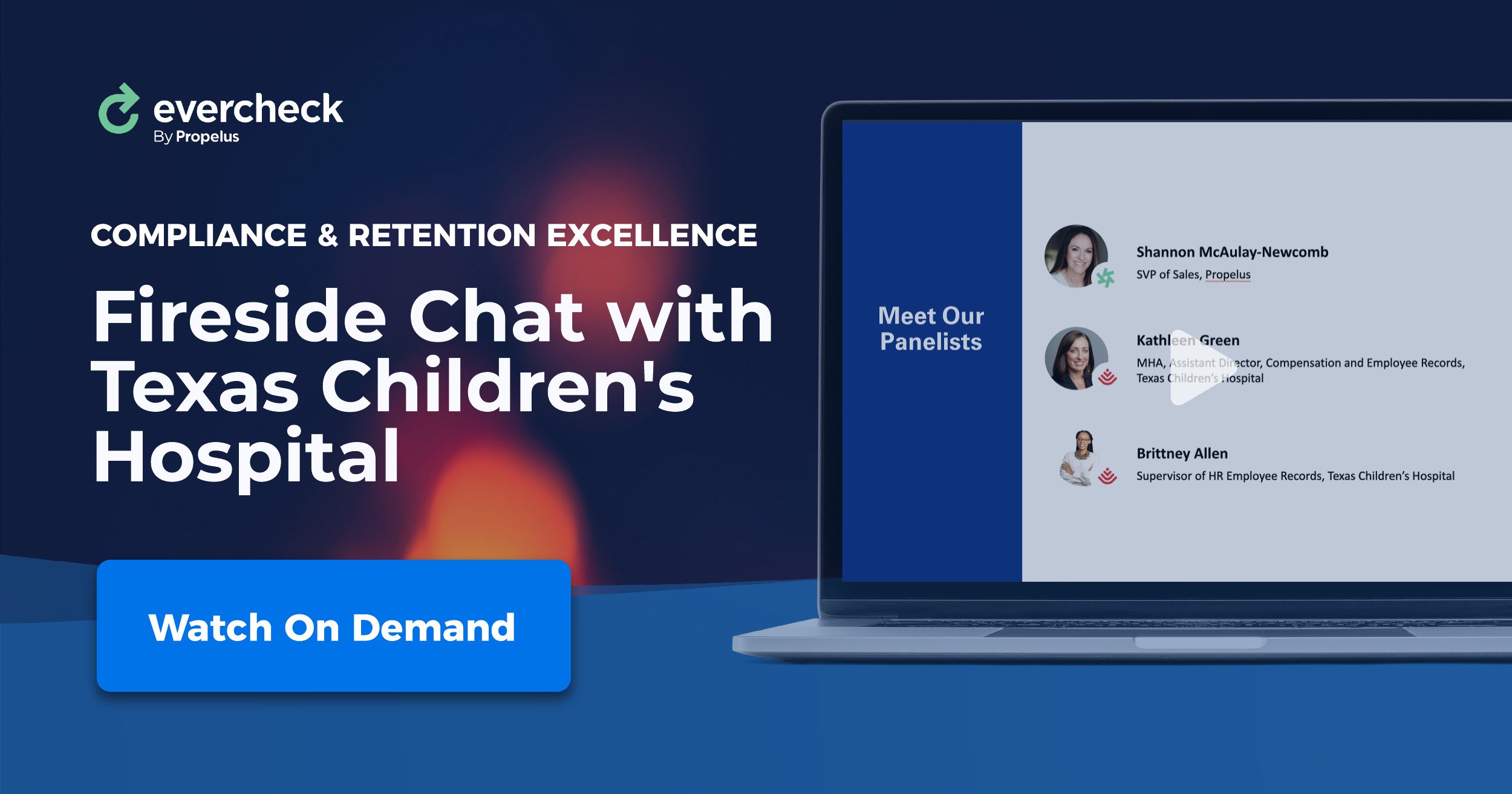
Dear healthcare recruiters,
Would you be surprised if I told you that you have a lot in common with Airbnb? Allow me to explain. You do have a lot more in common with the multi-billion dollar home-sharing marketplace than you realize, and you can apply some of their strategies to your own.Let's take a graphical look at Airbnb's business model.

Admittedly, that's an intense graphic for what Airbnb does, but essentially they're the middleman between people with rooms to share and people looking for a place to stay. They're responsible for satisfying two sets of clients and opening up opportunities for folks who wouldn't otherwise have a platform to share their homes or need a place to stay.
Are you starting to draw the similarities? Here, now let's take a look at healthcare recruiters:

See, you're a middleman, too! You are a two-way facilitator who's responsible for not only meeting organizational needs but also creating an excellent candidate experience. You have two sets of clients, just like Airbnb.
Whereas Airbnb is in the business of trips, you're in the business of opportunity. But no matter the industry, the lessons run parallel. Here's what healthcare recruiters can learn from their travel counterparts.
Establishing trust...
is first on your to-do list, and it's one of the biggest challenges Airbnb faces. Opening your home to strangers can be unnerving, and staying in a stranger's home may not leave you warm and fuzzy, either. Airbnb is responsible for establishing trust between the two parties, and they do it with clever features like verified profiles, reviews, messaging, and guarantees.
You, too, have to establish trust right away. Even though you're not an online platform with fancy bells & whistles, there are ways that you can build and maintain a strong network of employers and candidates who trust you.
1. Do what you say you'll do.
This is the best way to establish trust right off the bat. If you tell a candidate you will email them with more position details, don't wait any longer than 24 hours.
2. Be honest.
Honesty and trust go hand in hand. If you feel like the candidate isn't the right fit for the position, it's better to say, "I don't feel you're right for this position, but I'd like to keep you in mind for future roles. Are you alright with that?" There's nothing worse than waiting with false hope only to be let down later.
3. Establish clear goals and expectations.
Limbo is not a place employers or job seekers ever want to be. Make sure that for every action, there is the next action. Even if waiting is the next action, give a realistic time frame for when they'll hear from you. Never leave either of your clients wondering what happens next.
Stay personal.
In the beginning, Airbnb spent a considerable amount of time with hosts to understand how Airbnb could best serve them. This helped paint a picture of hosts' challenges and opportunities and forged a customer-provider relationship and a partnership.
It's important that recruiters understand the organization's employment needs on more than a superficial level. Understanding organizational culture, goals, and objectives will help recruiters find candidates who are the right fit for the position on paper and on a cultural and strategic level.
Build an exceptional experience.
Airbnb's interface is simple and intuitive and gives users exactly what they need (in many cases, even better than many hotel search sites). The experience is enjoyable for both hosts and guests.
How often do you get questions from employers and job-seekers about how to send and receive documents, what the next steps are, status updates, etc.?
The experience should be transparent, intuitive, and seamless for everyone involved. Sometimes making the experience seamless requires a little self-reflection: is there something I could have done to make the process more transparent for my employer and candidates? If so, take note and keep improving.
If it has more to do with technological limitations, it's probably time to start rethinking your options (even if it's an internal program). One of the reasons Airbnb's experience is so successful is that the interface was designed from a human-centric approach - it takes users' goals and motivations into account and helps them move toward the desired goal quickly and efficiently.
There are tools for human resources & recruiters that are designed this way. Research your options if you feel your technology isn't meeting your needs. Being solutions-oriented (rather than problem-oriented) is a characteristic all supervisors appreciate, and if you pitch it right, you could end up delivering an exceptional candidate/employer experience.
Even though Airbnb is in the business of trips and you're in the business of opportunity, you're both responsible for bridging a gap that would have otherwise been very difficult to do without you. Now get out there and apply some of these awesome insights from Airbnb!
--
If you're responsible for primary source verification at your hospital, you should take a look at EverCheck's resource, The 7 Best Practices for Primary Source Verification. It has a few great tips on how to do license verification faster and more efficiently than you may be doing it now.



